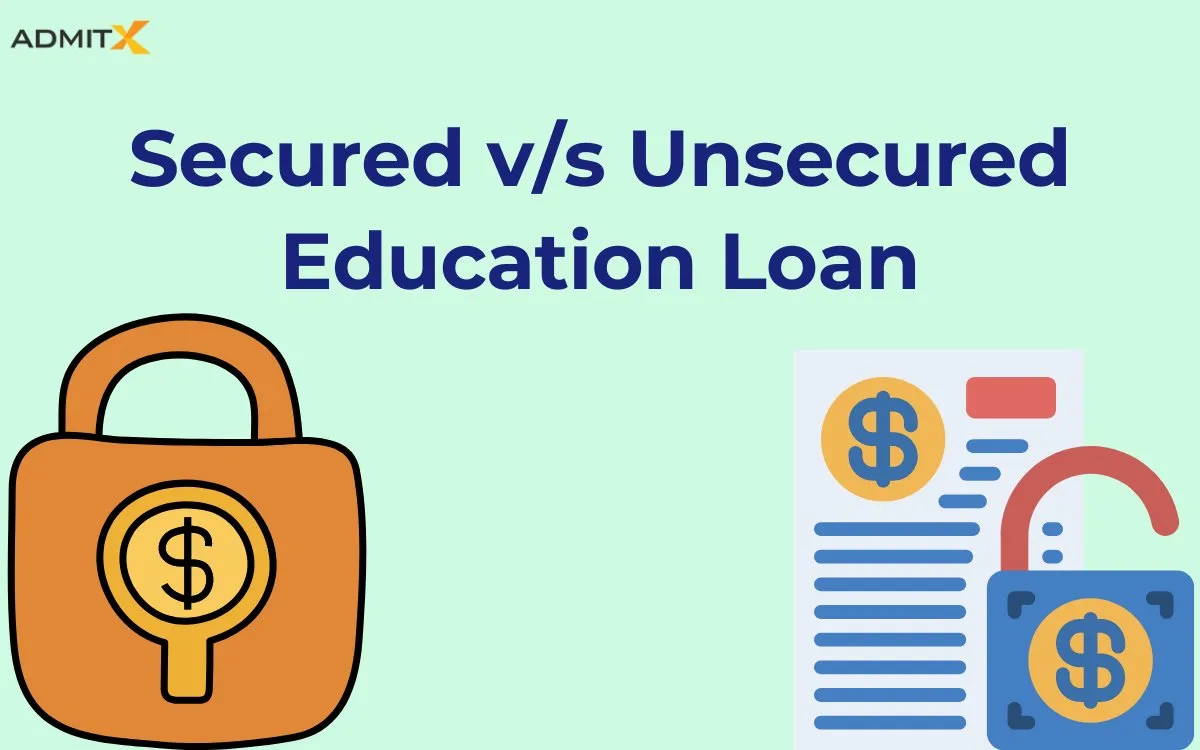The purpose of the Cyber Security course in Germany is meant for to establish a strong attacking and defensive mechanism against IT security threats on a global level.
Pursuing an MS in Cyber Security in Germany provides great advantages to an individual as it not only imparts a theoretical and practical approach towards ensuring the preparedness of young professionals against virtual threats but also a vast career scope.
Table of Contents
MS in Cyber Security in Germany: An Introduction
As the usage of digital technologies and online services increases in our everyday lives, individual as well as government information is at greater risk than ever, especially if it is related to national concerns.
This can come in the form of stealing confidential information and destroying online security systems, cyber threats such as ransomware, zero-day exploits, and advanced persistent threats (APTs) pose significant challenges to the government as well as the public.
Cyber Security is the special branch of Computer Science that deals with the technologies, and best practices used to protect digital systems, networks, and data from cyber threats.
Given these challenges mentioned above, many countries have implemented various action plans to tackle cyber threats and Germany is one of those leading countries where specialised degree programs are being administered by higher institutes to prepare the skilled professionals who can weaponise the country to face such threats.
Also read- Benefits of studying in Germany
Top Universities for MS in Cyber Security in Germany 2024
Before you start pursuing MS/M.Sc. in Cyber Security in Germany, it is important to know which universities are the best fit for you, not just in terms of academics but also in terms of fee structure and specialization programs offered by them, just to make sure that your passion can be aligned with your decision.
Here, we have enlisted the top universities that provide Master’s level Cyber Security course in Germany, including their ranking, fees and available specialisation
| Universities | QS World University Ranking (by subject) | Tuition Fees (per year) | Specialisations |
|---|---|---|---|
| Technical University of Munich | 29 | €13800 | M.Sc. in Information System |
| Technische Universität Berlin (TU Berlin) | 70 | No tuition fees (only semester fees) | M.Sc. in Computer Science (Informatik) |
| RWTH Aachen University | 90 | No tuition fees (only semester fees) | M.Sc. in Computer Engineering and Information Technology |
| KIT, Karlsruhe Institute of Technology | 104 | €1500,00 | M.Sc. in Information Systems Engineering and Management |
| Technical University of Darmstadt | 133 | No tuition fees (only semester fees) | M.Sc in Informatik |
| Humboldt-Universität zu Berlin | 151-200 | €550 | M.Sc in Informatics |
| Berlin School of Technology, SRH Berlin University of Applied Sciences | - | €11,900 | M.Sc in Computer Science (Cyber Security) |
| Saarland University | 201-250 | No tuition fees (only semester fees) | M.Sc in Cyber Security |
| Lancaster University | - | €23,500 | M.Sc in Cyber Security |
| TU Dortmund University | 301-350 | No tuition fees (only semester fees) | M.Sc in Natural Sciences and Computer Sciences |
Also read- Scholarship in Germany 2024
Curriculum of MS in Cyber Security in Germany
In the 21st century, the development and incorporation of various technological advancements in various walks of life come with great challenges and concerns like stealing confidential information, hacking digital systems fishing etc.
This required significant attention and that is why global universities have decided to inculcate a special degree program to tackle those threats by preparing an ‘army’ of skilled cyber professionals whose duty should be to confront those challenges and design advanced security systems for defence mechanisms, not only for government agencies but also for common peoples.
Below we have presented the common curriculum which are followed nowadays in MS in Cyber Security in Germany.
- Data and software engineering
- Embedded systems
- Fundamentals of computer science
- Cognitive systems
- Artificial Intelligence (AI) & Machine Learning
- IT Security & Privacy
- Artificial Intelligence as a Service (AIaaS)
- Digital Forensics
- Information System Risk Management
- Information System Security Management
- Cyber Laws
- Network and Systems Security
- Penetration testing
- Thesis
Eligibility Criteria for MS in Cyber Security in Germany
The eligibility criteria for Indian students to pursue MS in Cyber Security in Germany are given below.
Direct Admission
Indian students who have completed their undergraduate degree in B.Tech (Computer Science) of 4 years duration are eligible to get admission to M.Sc/MS in Cyber Security in Germany directly by applying on the university website.
Indirect Admission
In case an Indian student has completed his/her undergraduation in a 3-year degree course like B.Sc (with Mathematics and Physics) they have to complete the preparatory course through Studienkolleg to become eligible for masters in cyber security in Germany.
Age Criteria
An Indian student must be 21 years old to pursue masters in Germany.
It must be noted that some universities might ask for relevant professional experience within cyber security industry. It is highly recommended the previous studies have included Operating Systems, Networking and Computer programming (preferably Python).
Also, some universities might ask to fulfil certain language requirements (English/German or both).
Also read- Costs of Living in Germany 2024
Documents Checklist
- Minimum CGPA of 7.0 or GPA of 2.7-3.5 in bachelor’s degree course.
- Academic transcripts like marsheets, degrees, school/college leaving certificates etc.
- Duly completed Application form
- Depending on the university, students may be asked to produce an aptitude test score/entrance score certificate.
- Results of English-language proficiency tests such as IELTS/TOEFL.
6.5 for IELTS
60-90 for TOEFL - Some universities need German proficiency like TestDAF
- 2-3 Letters of Recommendation
- 1-2 Statement of Purpose
- 2 years of work experience (non-consecutive course)
- APS Certificate
- 2 passport-sized photographs
- Blocked Account for showing proof of funds (Minimum €11,208 must be deposited before applying for study visa)
- CV (if required)
- Passport
- Evaluation of Bachelor’s certificates by Uniassist
- Health Insurance
Intakes in Germany 2024
| Intake type | Commencement of Application | Application Deadlines | Commencement of Session |
|---|---|---|---|
| Summer intake | December 2023 | January 2024 | April-May 2024 |
| Winter intake | January 2024 | May 2024 | August-September 2024 |
Application Process for MS in Cyber Security in Germany 2024
Indian students desiring to pursue the MS in Cyber Security in Germany must apply on a common portal, Uniassist. Some universities have their dedicated portal for different courses.
The preparation for applying to German universities should be initiated 1 year before the commencement of the session in particular or desired intake.
This is so because assembling required documents and preparation for standardized tests might take time which can be compensated if the process commenced earlier.
Cyber Security Jobs in Germany for Indian Students 2024
As we have discussed earlier the international community is facing widespread cyber threats at both individual and societal levels because of ill motives of misanthropic elements.
This causes significant loss of personal and professional data and sometimes it leads to undesirable results such as ransomware, identity theft and financial harm. To overcome these challenges, the requirement for cyber professionals has been increased which causes the creation of diverse career options.
Here, we have tabulated the popular Cyber security jobs in Germany that an international graduate can pursue in the country along with their respective average salary.
| Job Title | Average Salary (per year) |
|---|---|
| Cyber Security Analyst | €53,000 - €75,000 |
| Cyber Security Consultant | €50,000 - €70,000 |
| Manager IT Security | €55,000 - €96,000 |
| Cyber Security Expert | €58,000 - €85,000 |
| Cyber Security Architect | €62,000 - €100,000 |
| Data Security Manager | €60,000 - €93,000 |
| Information Security Administrator | €55,000 - €89,000 |
| Cross-Platform Security Manager | €69,000 - €95,000 |
Conclusion
To sum up, the purpose of the Cyber Security course in Germany is meant for to establish a strong attacking and defensive mechanism against IT security threats on a global level.
Germany is the leading European country with a robust economy, modern infrastructure, cutting-edge technology and the best universities which offer various specialisation programs in Computer Science, one which is popularly known as MS in Cyber Security.
It does not only impart a theoretical and practical approach towards ensuring the preparedness of young professionals against virtual threats but also encourages them to lead the ‘cyber war’ against those who want to disrupt and harm the normal lives of others through their malicious intentions.
FAQs
What should be the reason to pursue Cyber security course in Germany?
One of the biggest reasons to pursue Cyber security courses in Germany is that there are Germany is less prepared than other European nations in the most recently available ITU Global Cybersecurity Index where Germany ranks 13th in Europe for its commitment to cyber security. Germany is facing a shortage of IT and Cyber professionals which has created a demand for skilful and talented persons to tackle cyber issues.
Can I pursue a part-time job while studying for an MS in Cyber Security in Germany?
Yes, Indian students are allowed to work part-time for 120 full days or 240 half days annually without being allowed to undertake freelancing projects or self-employment.
Is it necessary to have health insurance before embarking on the journey to Germany for studies?
Yes, it is required to have health insurance before applying for a study visa for Germany. The insurance should have a minimum coverage of €30,000
If you are an aspirant looking to study at your dream university, book an appointment with AdmitX today and start your applications early to avail yourself of all the benefits.




